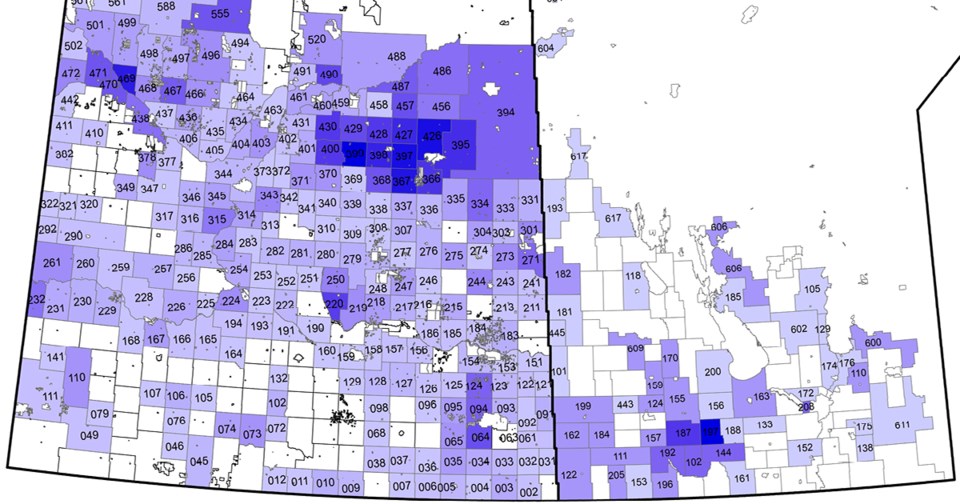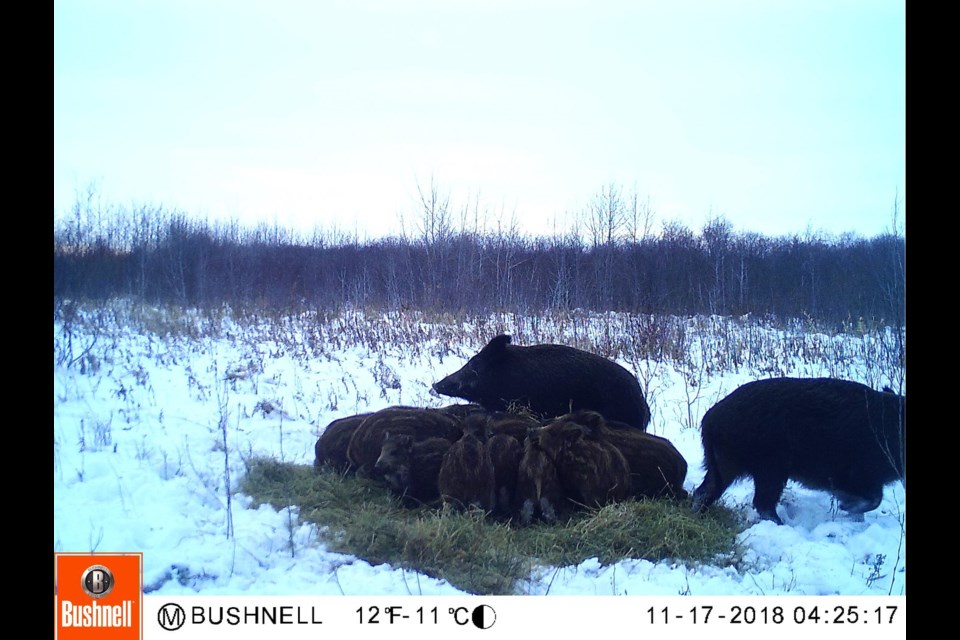Ray Beck has seen the damage wild pigs can do when left unchecked.
Beck, a roughly 20-year rural municipality pest control veteran, says he’s seen wild boars ruin a nine-hole golf course “basically overnight” on a visit to Texas. In the five southern Saskatchewan rural municipalities he serves, he’s managed to mostly eliminate the problem, he says — largely with a rifle.
“It is incredible, the power of their noses.”
University of Saskatchewan professor Ryan Brook has developed a mapping tool that may help people like Beck. The tool, which is compatible with Google Earth, uses 296 rural municipalities to track wild pigs across the province.
Brook said anyone interested can download the maps on the Canadian Wild Pig Research Project Facebook page. The data includes resident reports, photos from trail cameras, and tracking collars to project wild pig concentration.
He says the mapping tool may have a wide range of uses. Hunters can also use it to inform where they track pigs, while hikers can use it to plan routes.
If farmers and ranchers are concerned about damage to their property, they can zoom in on their community and surrounding area to see the risk. That gives them a chance to take preventative measures like putting up fencing.
Agricultural Producers Association of Saskatchewan president Todd Lewis said a tracking tool should help farmers keep up to date on the risks wild pigs pose to their properties.
“They’re very invasive, and can really cause a lot of problems both to crops … also they’re just terrible with livestock,” Lewis said. “Very aggressive animals. It’s a real problem, if you do have them.”
Brook said that’s because the animals root through fields with their snouts, shredding farm land. Because of their destructiveness and capacity to spread disease, they’re considered one of the worst invasive mammals facing the province.
Brook said the animals were brought to Saskatchewan in the 1980s and ’90s, but they escaped from their fencing and spread rapidly. They have roughly six piglets per litter and multiple litters per year, and have home ranges of about 300 square kilometres or more, Brook added.
He said they’re nearly impossible to eradicate in some parts of the province, but the tracking tool may help inform residents of any risk. While he’s unsure how many there are in the province, he said they’re spreading quickly.
“We are on track toward having more wild pigs than people.”





